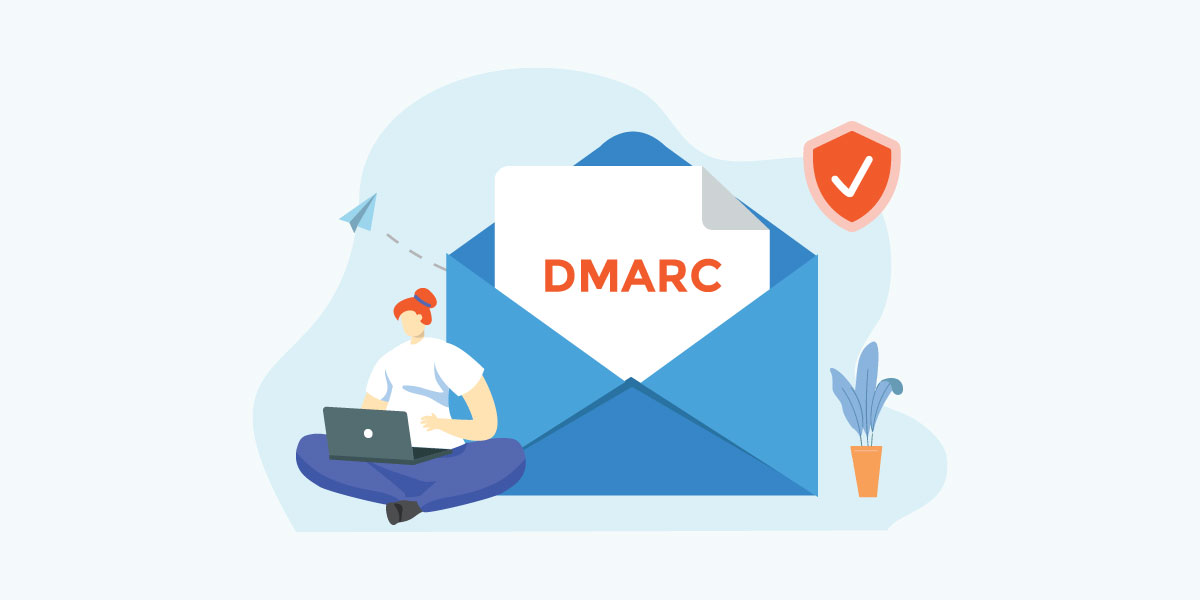In the ever-connected world of the internet, email is a cornerstone of communication. However, this ubiquity also makes it a prime target for cyber threats such as phishing and spoofing. Enter DMARC, or Domain-based Message Authentication, Reporting, and Conformance, a robust email authentication protocol designed to bolster email security. In this blog post, we'll delve into the world of DMARC, exploring what it is, how it works, its importance, and how it empowers organizations to defend against email-based attacks.
Understanding DMARC
Domain-based Message Authentication, Reporting, and Conformance (DMARC) is an email authentication and reporting protocol. It enables domain owners to specify how their emails should be authenticated and what actions should be taken if authentication fails. DMARC builds upon two other authentication mechanisms, SPF (Sender Policy Framework) and DKIM (DomainKeys Identified Mail), to provide a comprehensive solution for email security.
How DMARC Works
Here's a simplified overview of how DMARC works:
- Email Authentication: DMARC combines SPF and DKIM to authenticate incoming emails. SPF checks if the sender's IP address is authorized to send on behalf of the domain, while DKIM verifies the digital signature on the email header.
- DMARC Policy: The domain owner publishes a DMARC policy in their DNS (Domain Name System) records. This policy instructs receiving mail servers on how to handle emails claiming to be from the domain.
- Policy Evaluation: When an email is received, the recipient's mail server checks for the DMARC policy in the sender's DNS records. It evaluates whether the email passes SPF and/or DKIM checks.
- Policy Actions: Based on the DMARC policy, the recipient's server can take various actions:
- None: Take no specific action but report the results to the domain owner.
- Quarantine: Treat the email as suspicious or spam and move it to a spam folder.
- Reject: Reject the email outright.
- Reporting: DMARC also includes reporting mechanisms that provide domain owners with insights into who is sending emails on their behalf and whether these emails are passing or failing authentication.
The Importance of DMARC
DMARC offers several key benefits:
- Email Authentication: It verifies the authenticity of the sender's domain, reducing the risk of email spoofing and phishing attacks.
- Improved Deliverability: DMARC policies can enhance email deliverability by preventing emails from being marked as spam.
- Visibility: DMARC reporting provides domain owners with valuable insights into email traffic and authentication results.
- Brand Protection: It helps protect a domain's reputation and prevents cybercriminals from impersonating the domain.
- Consistency: DMARC ensures consistent email authentication practices, reducing the chances of misconfigured email systems.
Implementing DMARC
To implement DMARC for your domain, follow these steps:
- Publish DMARC Policy: Create a DMARC record in your DNS zone. This record defines your DMARC policy, including what actions should be taken when an email fails authentication.
- Gradual Enforcement: Implement DMARC with a "none" policy to monitor email authentication results without impacting email delivery. Then, gradually move to a "quarantine" or "reject" policy as you gain confidence in your email authentication setup.
- Regular Reporting: Monitor DMARC reports to gain insights into your email traffic and authentication results. Adjust your policy and configuration as needed.
- Collaborate with Senders: If you're an email sender, collaborate with domain owners to ensure your emails align with their DMARC policies.
Conclusion
In a digital landscape where cyber threats loom large, DMARC emerges as a powerful ally in the battle against email-based attacks. It authenticates senders, reduces the risk of email spoofing, and helps protect a domain's reputation. By implementing DMARC and fine-tuning its policies, organizations can fortify their email security defenses and ensure that their communications remain trustworthy and secure. In a world where the integrity of digital communication is paramount, DMARC stands as a robust shield against email-based threats, defending the inboxes of individuals and organizations alike.

Comments
Post a Comment